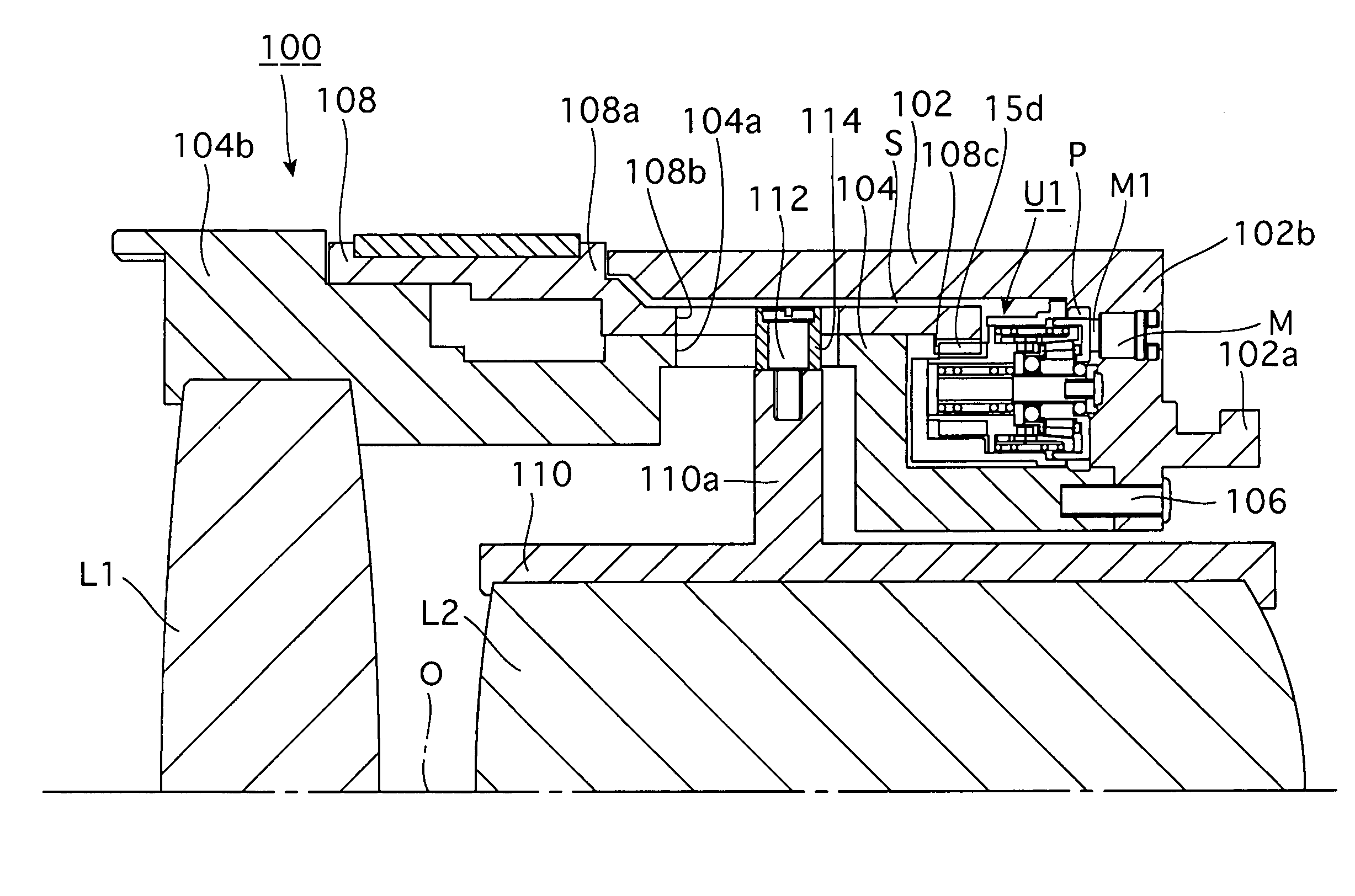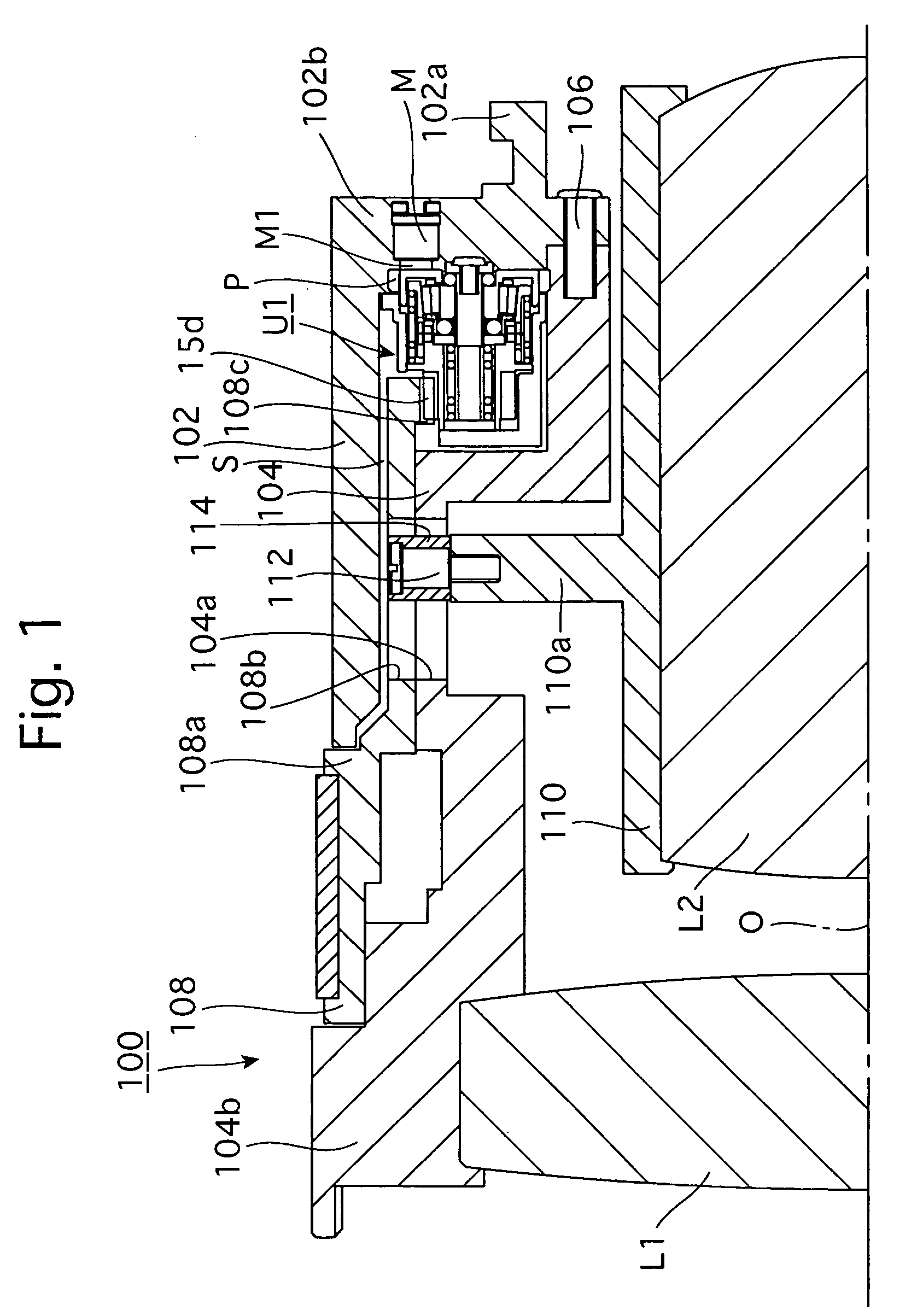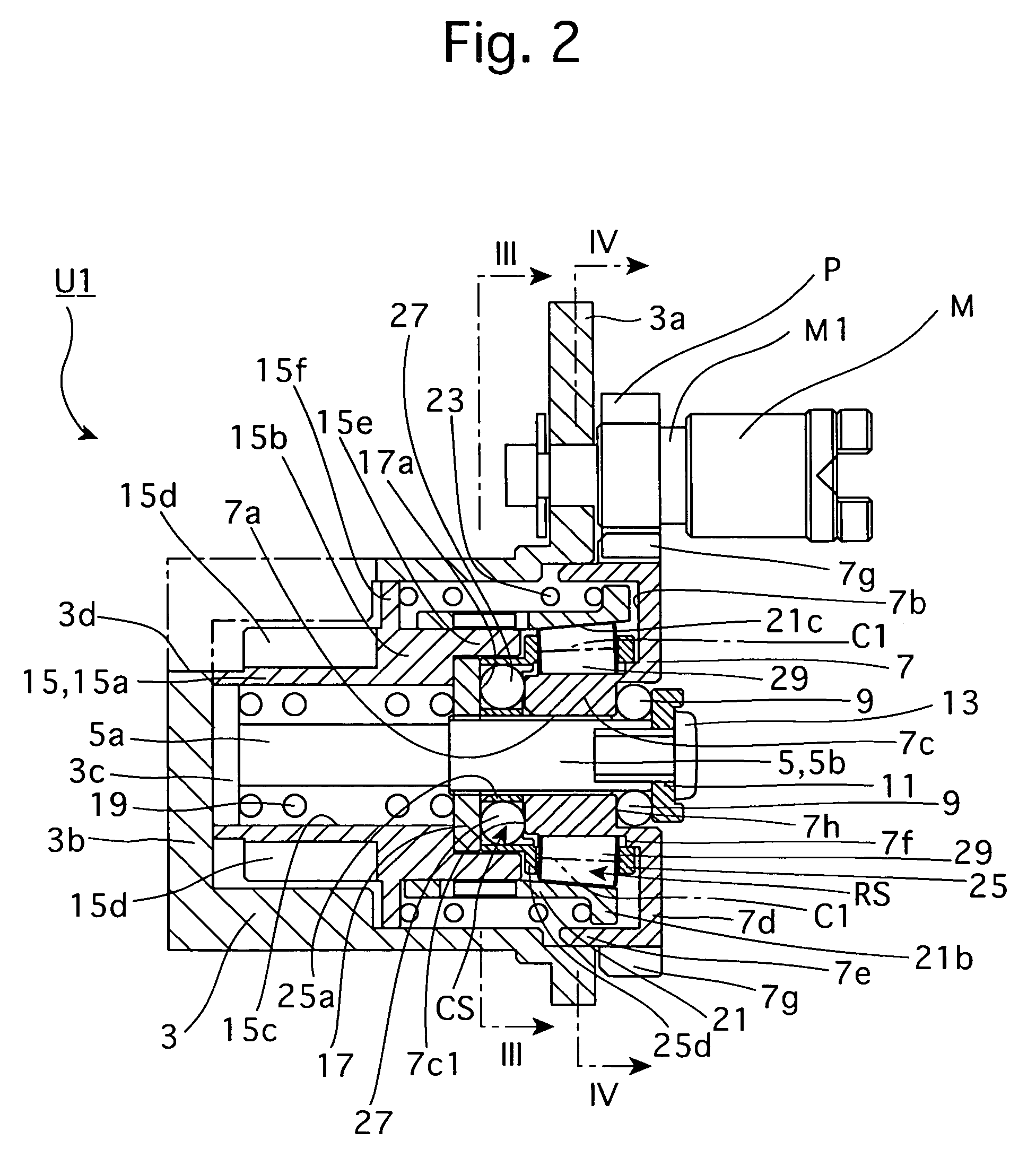One-way rotational transfer mechanism, and a lens barrel incorporating the same
a technology of rotational transfer mechanism and lens barrel, which is applied in the direction of camera focusing arrangement, gearing, printers, etc., can solve the problems of difficult to increase the number of rollers serving as torque transfer members, complicated structure, and uneven transfer of driving force of af motor to the distance adjustment ring, etc., to achieve greater torque, simple structure, and transfer a torque
- Summary
- Abstract
- Description
- Claims
- Application Information
AI Technical Summary
Benefits of technology
Problems solved by technology
Method used
Image
Examples
Embodiment Construction
[0076]FIGS. 1 through 7 show a first embodiment of a lens barrel which is can be switched between an autofocus (AF) mode and a manual focus (MF) mode for an autofocus camera.
[0077]Firstly, the overall structure of this embodiment of the lens barrel 100 will be discussed hereinafter.
[0078]In the following descriptions, the front and rear of the lens barrel 100 correspond to the left and right sides of the lens barrel 100 as viewed in FIG. 1, respectively. The lens barrel 100 is provided with a first stationary ring 102 having a mount portion (bayonet mount portion) 102a at a rear end of the first stationary ring 102. The mount portion 102a is mounted to a body mount provided on a camera body (not shown) via a bayonet engagement when the lens barrel 100 is attached to the camera body. The lens barrel 100 is provided inside the first stationary ring 102 with a second stationary ring 104, the rear end of which is fixed to the rear end of the first stationary ring 102 by set screws 106 (...
PUM
 Login to View More
Login to View More Abstract
Description
Claims
Application Information
 Login to View More
Login to View More - R&D
- Intellectual Property
- Life Sciences
- Materials
- Tech Scout
- Unparalleled Data Quality
- Higher Quality Content
- 60% Fewer Hallucinations
Browse by: Latest US Patents, China's latest patents, Technical Efficacy Thesaurus, Application Domain, Technology Topic, Popular Technical Reports.
© 2025 PatSnap. All rights reserved.Legal|Privacy policy|Modern Slavery Act Transparency Statement|Sitemap|About US| Contact US: help@patsnap.com



